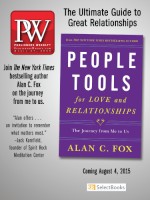Since the collapse of Borders, independent booksellers’ role in the sale of print books has increased, but that does not seem to be the case for physical audio. According to Nielsen Books & Consumers, retail, a segment that includes bookstores, accounted for just 12% of unit sales last year. As digital downloads take an ever-increasing share off the audio pie, audio download sites such as Audiobooks.com and audiobooks bought on iTunes constitute the largest audio sales channel (44% of unit sales), followed by Amazon (including Audible, its subsidiary).
While a number of independent bookstores continue to sell physical audiobooks, at many stores it’s become more of a service for customers than a source of profit. One of the major reasons indies have scaled back the sale of physical audio is price; a digital download costs much less than a CD. One area that remains of interest to some booksellers, however, is used audiobooks, since their price points are usually much more competitive with digital titles.
“[CDs] are not a huge seller for us,” says Arvin Ram, co-owner of Townie Books, in Crested Butte, Colo., which carries seven audiobook titles during the off seasons (winter, spring, and fall). In summer, the section bulks up with 15 titles. “We mostly carry them for people on vacation who just realized that they have a 17-hour drive ahead of them and nothing to do. The titles are there so we don’t disappoint,” Ram adds.
“It’s a very small part of the business,” says bookseller Jody Chwatun at Saturn Booksellers in Gaylord, Mich. The store devotes one shelf to nonfiction and two to fiction, and it has a rental service, which costs $5 per audiobook and usually gets two or three takers per week. It also offers digital audio downloads in conjunction with Baker & Taylor’s Acoustik platform on the store’s website, but that too draws only a few customers, says Chwatun.
Holly’s Book Rack, which carries used books and some new titles in Mansfield, Ohio, and also offers Mac and PC repair, is one of the few stores to have recently expanded its audiobook selection. Just before Christmas the store went from having one shelf for audio to creating an entire section for it, according to co-owner Chris Workman, who listens to audiobooks on his half-hour commute. “We get a lot of people on vacation. They’ll load up with a couple or three. We have people who don’t read [physical books] at all; they just listen,” he says. Because of the price of new audiobooks, Holly’s stocks only used audio, which Workman finds at auctions and at estate sales. But the majority of used audiobooks, nearly 75%, come from store customers who trade them in.
“We sell [audiobooks] like there’s no tomorrow,” comments Jeremy Frye, assistant A/V director at Mr. K’s Used Books, Music and More, in Asheville, N.C. But that’s as long as the price is right. At his store (there are four others), the sweet spot is between $4 and $10 for used audiobooks by bestselling authors such as James Patterson and Debbie Macomber. Truck drivers and people who have long commutes will bring in as many as 50 audiobooks at a time for store credit. The bookstore has one shelf of fiction and a smaller shelf of nonfiction audiobooks. Together they take up about 2% of shelf space.
Some stores that used to carry new audiobooks no longer do so. That’s the case at Rediscovered Books, in Boise, Idaho, which stopped carrying them two years ago, because they are “so danged expensive,” according to Wally Johnston, institutional sales manager and kids’ book buyer. “We never had exactly what customers wanted,” she explains, “and if we did, it was $60.” If someone wants an audiobook, the store recommends that they rent them from the local library.
“My prediction is that audiobook CDs will disappear in a few years, or only be available through libraries,” says Julie Moncton, former owner of All Ears Audiobooks, in El Paseo, Calif., which closed in 2012, one of a handful of audio-only bookstores. “Not only is technology driving the move from physical audiobooks to downloads,” she continues, “but also price is probably the biggest factor. With a monthly membership plan, you can get an audiobook for about $10. Physical CDs are much more expensive.”



 Volume 262
Issue 17
04/27/2015
Volume 262
Issue 17
04/27/2015





